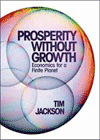Changing Tastes: Meat in Our Life Histories
Overall aims
To use a ‘life histories’ methodology to explore and understand how meat consumption patterns develop and change over the life course.
Context
Meat production and consumption contributes a significant proportion of greenhouse gas emissions in the UK. Moreover, it has further impacts on land degradation, water depletion and biodiversity loss. Meat, however, traditionally plays a central role in the diets of many people. Reducing meat consumption may not simply be a case of choosing differently, but is likely to involve a complex interaction between factors such as habit, social identity, social and cultural norms, as well as income, class, and age. The life history interview is a relatively new methodology which allows for the examination of the role and interaction of these factors as they change and develop over the life course, by exploring the memories, experiences, practices and behaviours of individuals and the social groups to which they belong - from childhood and the school years, leaving home, marriage and parenthood, through to retirement.
Research questions and methods
This research sought to examine the role that meat plays in the contemporary diet and lifestyle among three age groups (20-30, 40-60 & 70+). Life history interviews were conducted between March and December, 2009. They were semi-structured and typically lasted around two hours. Interview transcripts were analysed through thematic analysis.
Results
Meat consumption and practices has changed significantly throughout the lives of the interviewees. Key factors were changing social conditions (especially the place of the family meal in the weekly routine), major events (e.g., World War II), international travel and changing holiday and leisure patterns, the introduction of new technologies, as well as financial constraints. The study found a series of inter-connected themes, which show that meat consumption and practices are related to: 1) the role of meat as a catalyst for social relations (e.g., families brought together by meat-centric meals such as the Sunday roast or Christmas dinner); 2) the subjective interpretations of meat (e.g. meat as representing traditional meals; meat serving to differentiate traditional versus modern foods between generations; its role in conferring identity, status and as an indicator of cooking capabilities; 3) various life events, experiences and circumstances (e.g. rationing meat during wartime); 4) current and past cultural conditions (e.g. attitudes toward vegetarianism and diet/health).
Implications
The project demonstrated that meat consumption is intricately woven into personal, social and economic histories. As with other areas of our lives, changing consumption practices are not simply subject to financial factors or education, but are intimately tied up with our past, how we see ourselves, and how we would like others to see us.Outputs
Abrahamse, W, B Gaterslebenand D Uzzell 2009. Encouraging sustainable food consumption: the role of (threatened) identity.RESOLVE Working Paper Series 04-09. Guildford: University of Surrey.
Uzzell, D, E White and D Gatersleben 2009. Using the life history approach to examine food practices.8th Biennial Conference on Environmental Psychology, Zurich, September 6-9, 2009.
Uzzell, D 2010. Collective solutions to a global problem’, The Psychologist 23 (11): 880 – 883.
Uzzell, D 2010. Psychology and climate change: Collective solutions to a global problem. Joint British Academy/British Psychological Society Annual Lecture 2010, 23 September, 2010
Uzzell, D 2011. Unsustainable behaviours. Conference on ‘Changing behaviour, changing society? Responses to climate change’, University of Newcastle, 23nd June 2011
White, E and D Uzzell 2009. Using the life history approach to examine food practices. Paper presented at the RESOLVE Conference, London, 18 June 2009.
White, E2010. Life histories. Invited lecture at Bournemouth University, Bournemouth, 26 March, 2010.
White, E, D Uzzell and B Gatersleben 2010. Using life histories in outdoors research. Paper presented at Outdoors and Health Network Final Workshop, University of Brighton, Brighton, 24th March, 2010.
White, E, D Uzzell, N Räthzel and B Gatersleben 2010.Using life histories in psychology: a methodological guide. RESOLVE Working Paper Series 01-10. Guildford: University of Surrey.
White, E, D Uzzell and B Gatersleben and N Räthzel 2011. Changing tastes: meat in our life histories. RESOLVE Working Paper Series 05-11. Guildford: University of Surrey.





